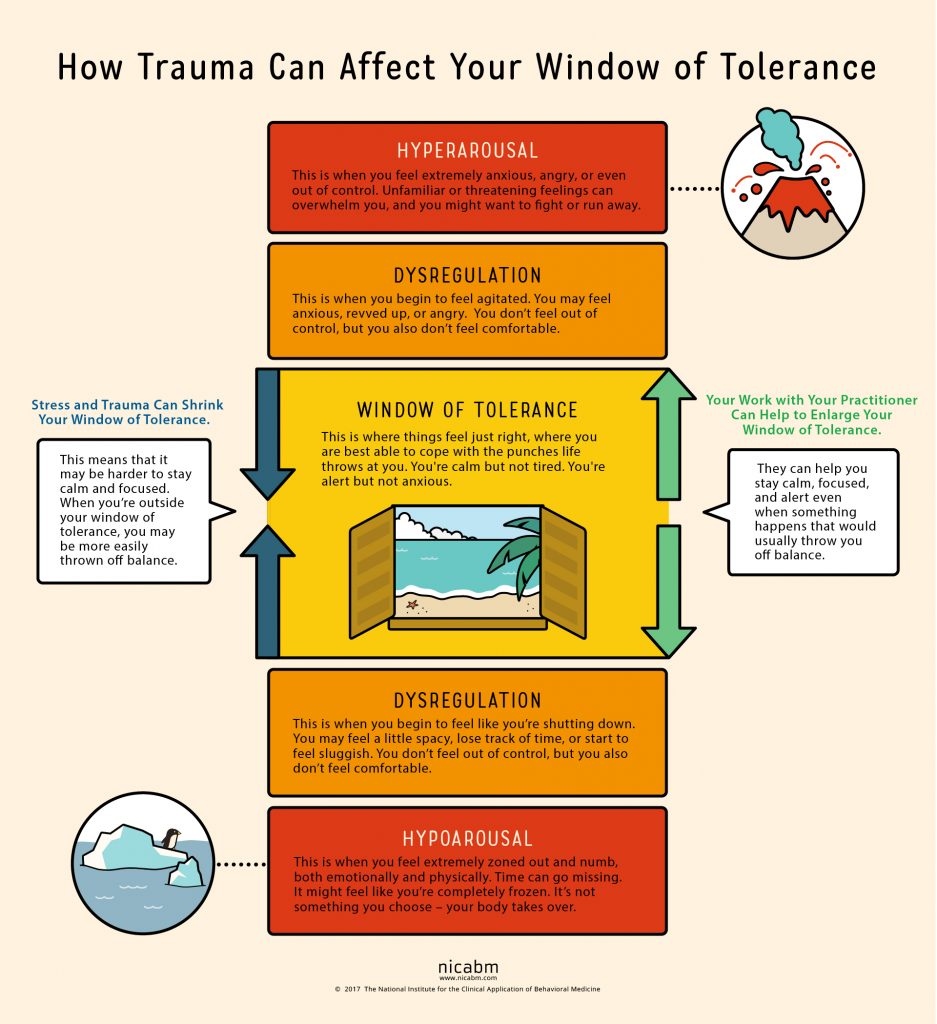Trauma is the response to a deeply personal distressing event you may have witnessed or experienced where you feared for your life or your safety.
Frequently, people whom I work with discount their experiences as being traumatic, incorrectly assuming war veterans are the only ones who experience PTSD; that isn’t true.
PTSD is diagnosed by symptoms you are experiencing as the result of the event(s) you were exposed to. Domestic violence, violence between individuals, assaults, car accidents, unexpected loss including divorce or one’s home being destroyed by fire or flood are common causes of PTSD. The Center for NeuroPotential offers comprehensive treatment of PTSD with Eye Movement Desensitization Reprocessing.
While each person’s reaction is unique, there are common symptoms that despite your best efforts, haven’t gone away. The symptoms are categorized into clusters of Reexperiencing, Avoidance, Arousal and Negative Thoughts.
Reexperiencing: Nightmares, flashbacks, unwanted upsetting memories
Avoidance: Efforts are made to avoid people, places or situations that serve as reminders
Arousal: Hypervigilance, irritability, feeling easily startled, difficulty sleeping and concentrating
Negative Thoughts/Mood: Inability to recall key features of traumatic event, decreased interest in activities or social isolation, overly negative thoughts and an exaggerated sense of blame of self or others for causing the trauma
These symptoms are a normal reaction to an extremely abnormal situation. For many, the symptoms abate within the first month. When this doesn’t occur, it is wise to connect with a mental health professional.
In the moment that a traumatic event occurs, your brain goes into overdrive releasing stress hormones preparing you to flee the situation. Unfortunately, in many situations, there is nowhere to run or hide. The supercharged release of Cortisol, Epinephrine, Adrenalin also begins to shut down unnecessary brain and body functions. Because of this process and key brain functions shutting down, the trauma memory doesn’t become stored in long-term memory. Instead, it is stored in the body as sensory information as in what you saw, what you heard, what you tasted, and what you felt in your body. While we hope this quiets down on its own, when it doesn’t there is hope and excellent options for permanent relief.
Eye Movement Desensitization Reprocessing, known as EMDR has decades of scientific research supporting its effectiveness as a treatment of PTSD.
EMDR is designed to help you find permanent relief of the uncomfortable PTSD symptoms using a structured and controlled approach to prevent unnecessary upset or triggering during the process. EMDR focuses on the past events which are causing upset in the here and now, and once the emotional charge has been removed, focuses on the future to create a future oriented template of how you would like to experience similar challenges if you ever need to. Future templating allows you to write the ideal future you’d like to experience.

EMDR is a collaborative form of therapy where we work together to be sure you remain within your Window of Tolerance as much as possible. It is normal to experience challenging feelings at times during the EMDR Process. Our goal is to minimize this and provide you with extensive distress tolerance tools to better ride the waves of distress while your brain heals and recovers from the effects of trauma.
The most important thing to remember is: you do not have to suffer from the effects of traumatic events.

